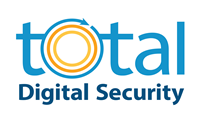Online investors hacked, the Experian fall-out continues with San Diego lawsuit.

The new age of risk.
Hi there,
Since our last letter in February, we see a meaningful uptick in new customers that have had funds stolen from their online investing accounts.
In one case, multiple accounts were wiped out simultaneously. Typically, this indicates the attack was planned and engineered over time by monitoring and timing the activities for maximum gain by the hackers. This hack started with a virus and could have easily been prevented with Device Protection.
For one retired 70-plus year old, it meant a complete wipeout of his life's savings. His nightmare began with a hacked Yahoo account. Many are not aware that "free" email, including Gmail and AOL and others, are the #1 door for entry in most attacks. Using a Private Email domain removes you from a major piece of the operating grid for hackers.
This is very serious stuff. And yet, most lack the understanding and tools it takes to avoid digital risk. We'll be reporting more on the matter, but for our customers and regular readers; it all comes back to "the fundamentals" - protect your device, use a VPN every day, and privatize your email. We make it simple and affordable, and it reduces almost all the risk by eliminating the "attack vectors" that hackers use in most of their exploits.
And now, with the Fixed-Network Security service, you can cyber-secure an entire location; your home, office, or business with comprehensive protection managed by an "IT department in the cloud."
It's our mission at TDS to make best-in-class solutions to these "fundamentals" available, affordable, and easy to use for anyone.

World of change around the corner
The Equifax breach is, to date, the most damaging cyber-attack of all. Certainly, that's the case in terms of increasing cyber risk in our individual lives, and with our personal technology.
For an example of how damaging stolen credit file information can be, and how extraordinarily broad and deep the implications of such a breach are, last week's announcement by the city attorney of San Diego to sue Experian says a lot about what's ahead. The suit alleges 250,000 city residents have been affected by the firm's breach in 2013, and cites the IRS in saying:
"Hackers filed more than 13,000 false returns using the hacked information, obtaining $65 million in fraudulent tax refunds.”
San Diego Union-Tribune reporter Greg Moran.

With city and federal income-tax revenue at stake and voters livid over the broken credit reporting system, restitution is being demanded. According to California law, and a potential fine of $2,500 per violation, I whip out my trusty old HP-12C calculator, use a rate of 250,000 violations, and the math says it's $625,000,000 in potential fines for Experian.
The Experian breach is a minor inconvenience compared in magnitude to the Equifax losses. We see the tip of the iceberg in the San Diego case, and the enormity of the fallout from both breaches is likely far from understood.
With the San Diego v. Experian case, voters, politicians, tax-collectors, and lawyers are aligned. It could gain national attention as individual privacy issues continue to emerge and the debate heats up. Over time, regulators and law enforcement will drive change to reduce the risk of cybercrime. In the meantime, the potential for loss and responsibility to protect fall most squarely on the shoulders of private individuals, families, and small businesses.
On a closing note, we've added some enhancements for customers using our private email system with Rackspace. Spam and virus filters are getting smarter, auto-fill just graduated to the next generation and free SSL for another layer of security for the webmail portal. All for the same low prices as before.
Thanks for reading,

brad@totaldigitalsecurity.com